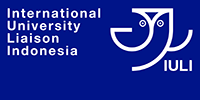
Halal is recognized world-wide as a crucial issue of safety focusing on spirituality for Muslims as well as being a sign of food quality for non-Muslims. With over 260 million people, a majority of whom are Muslims, Indonesia remains the largest Muslim country in the world — making it one of the biggest markets for Halal products and services. Effective from October 2019, the government of Indonesia has enforced mandatory halal certification and labeling measures for halal products in Indonesia with the National Body of Halal Assurance (BPJPH) as the highest authority to issue halal certificates to businesses. In addition,the MUI (Indonesian Ulama Council) is in charge of issuing the Halal fatwa and setting up the halal compliance standards. There are two major authorities under MUI — The Food, Drug and Cosmetics Assessment Agency (LPPOM), and the MUI Fatwa Committee. Both of them are in charge of the halal audit, assessment and declaration. Halal products are consumable products that can be used and applied by people in accordance with Islamic principles. Products subject to this law include goods and services related to food, beverages, pharmaceuticals, cosmetics, chemicals, biological products, and genetically-modified products. Therefore, Halal is one of the most important subjects in Food Technology.
Two lecturers from the Food Technology Department, Faculty of Life Science, International University Liaison Indonesia, Bu Mirza Rizqi Zulkarnain, STP, Msc and Bu Lely Rahmawaty, STP, MP joined the Halal Training and Competency Test “Pelatihan dan Uji Kompetensi Penyelia Halal” held by Halal Science Center Bogor Agricultural University (IPB) in cooperation with LPPOM MUI on 11-13 February 2020 in Campus IPB Baranangsiang, Bogor. The list of training materials included:
1. Introduction to Certification, Halal Assurance System and Halal Supervisory Competence
2. Regulation and Standard of Halal Assurance System
3. Halal Policy, Halal Management Resources, Resource Training
4. Materials, Products, Production Facilities and Supported Documents
5. SOP of Critical Activities, Tracking and Non Conformance Products
6. Evaluation of System Effectivity: Internal Audit, Management Review
7. Practice of Halal Assurance System Documents Development
8. Theory and Practice of Internal Audit




